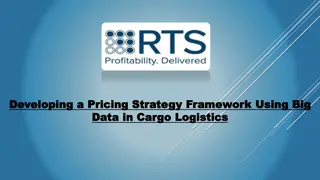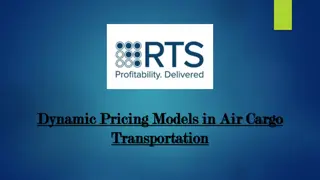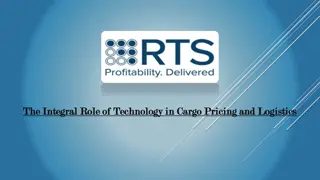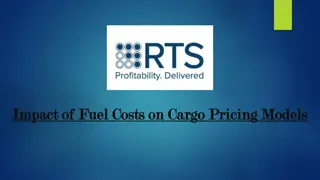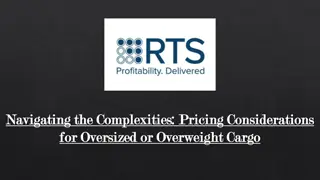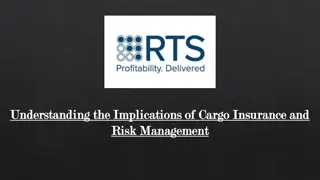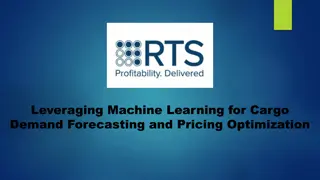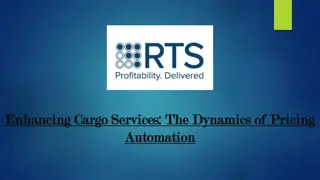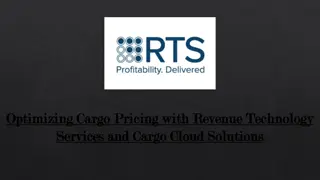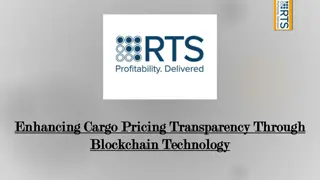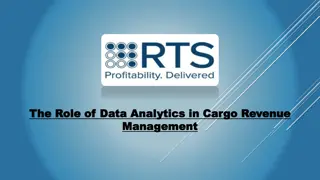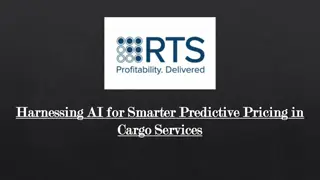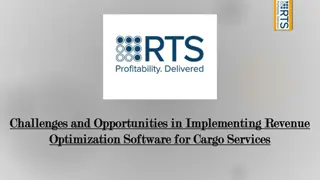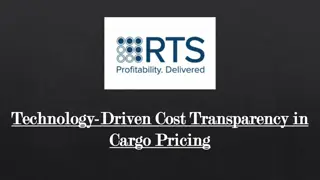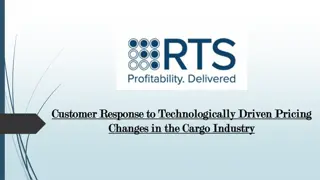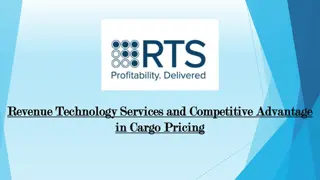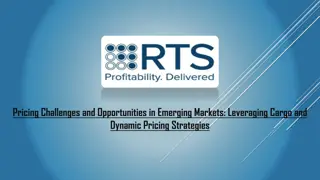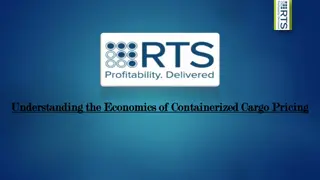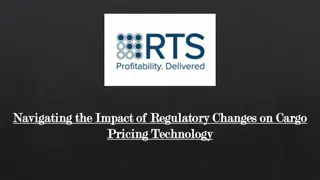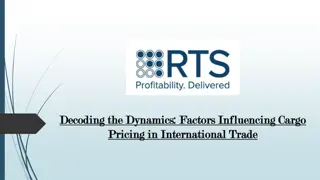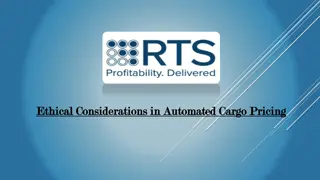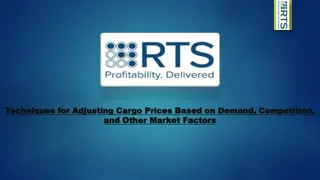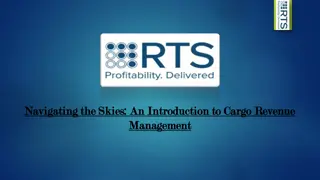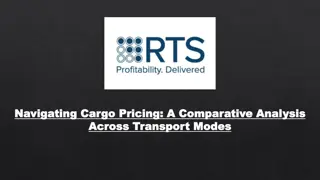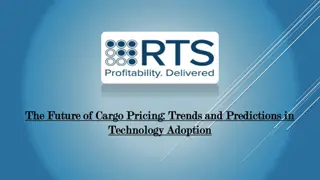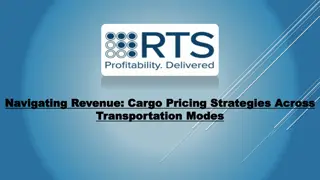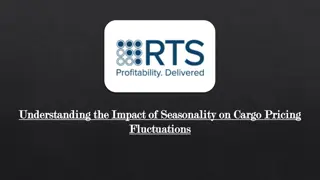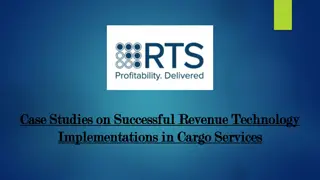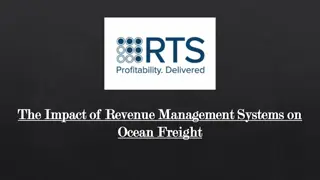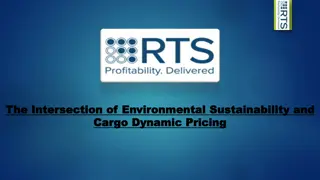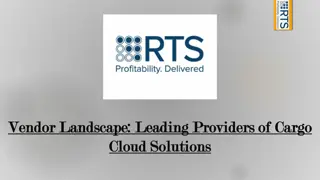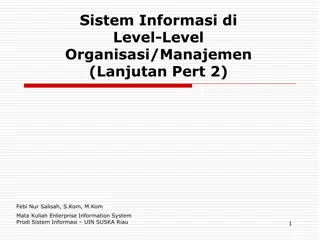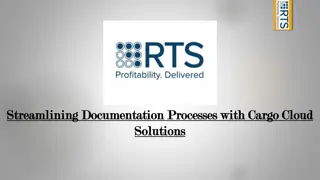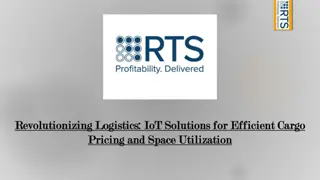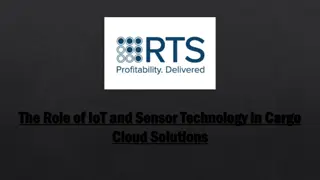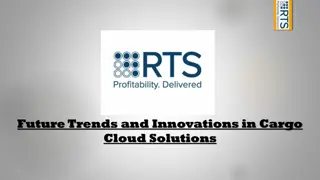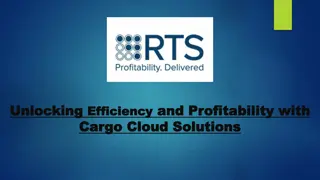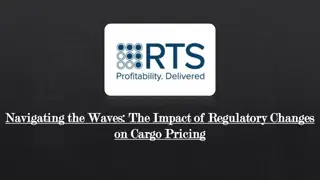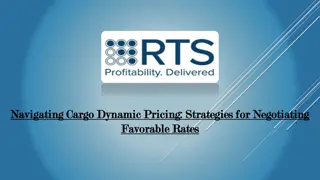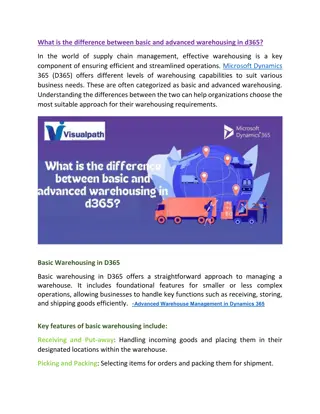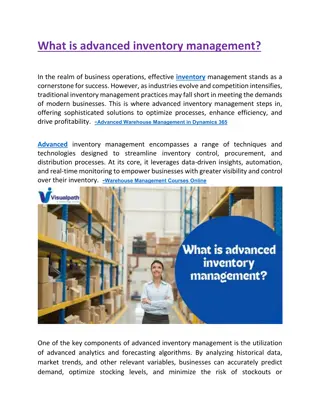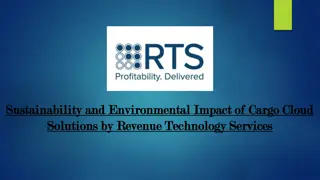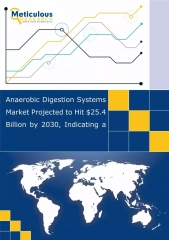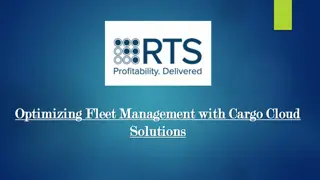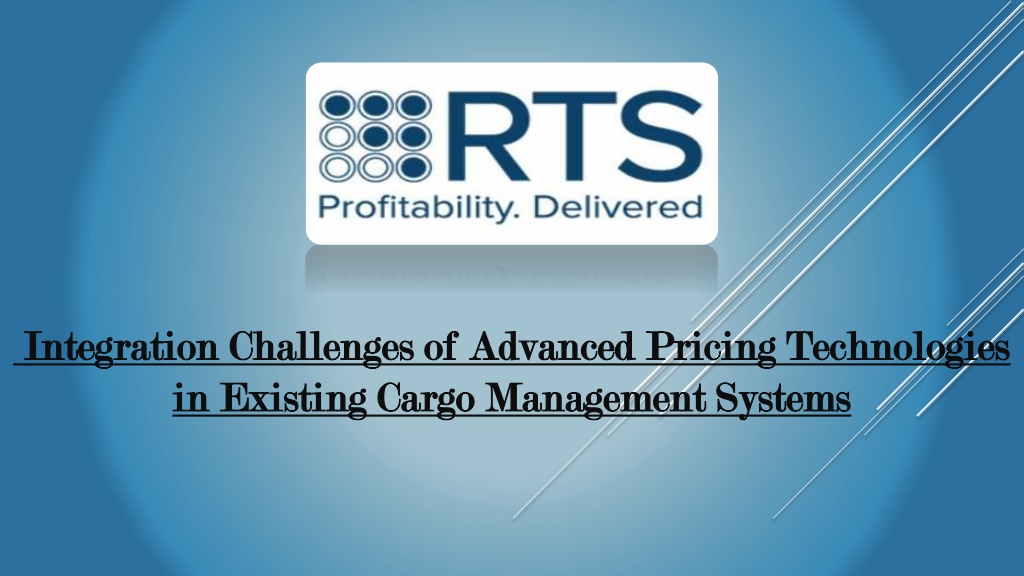
Integration Challenges of Advanced Pricing Technologies in Existing Cargo Management Systems (1)
In the ever-evolving landscape of cargo management, integrating advanced pricing technologies has emerged as a critical necessity. With the advent of dynamic pricing strategies, companies are pressed to ensure that their systems not only remain competitive but also adaptive to the shifting market demands. However, the integration of such sophisticated pricing mechanisms within existing frameworks poses several challenges that need strategic consideration and technical finesse.n
Uploaded on | 2 Views
- cargo revenue management
- cargo cloud solutions
- cargo pricing
- cargo revenue
- cargo solutions
- cargo strategy consulting
Integration Challenges of Advanced Pricing Technologies in Existing Cargo Management Systems (1)
PowerPoint presentation about 'Integration Challenges of Advanced Pricing Technologies in Existing Cargo Management Systems (1)'. This presentation describes the topic on In the ever-evolving landscape of cargo management, integrating advanced pricing technologies has emerged as a critical necessity. With the advent of dynamic pricing strategies, companies are pressed to ensure that their systems not only remain competitive but also adaptive to the shifting market demands. However, the integration of such sophisticated pricing mechanisms within existing frameworks poses several challenges that need strategic consideration and technical finesse.n. Download this presentation absolutely free.
Presentation Transcript
Integration Challenges of Advanced Pricing Technologies Integration Challenges of Advanced Pricing Technologies in Existing Cargo Management Systems in Existing Cargo Management Systems
In the ever In the ever- -evolving landscape of cargo management, integrating advanced pricing technologies evolving landscape of cargo management, integrating advanced pricing technologies has emerged as a critical necessity. With the advent of has emerged as a critical necessity. With the advent of dynamic pricing pressed to ensure that their systems not only remain competitive but also adaptive to the shifting pressed to ensure that their systems not only remain competitive but also adaptive to the shifting market demands. However, the integration of such sophisticated pricing mechanisms within market demands. However, the integration of such sophisticated pricing mechanisms within existing frameworks poses several challenges that need strategic consideration and technical existing frameworks poses several challenges that need strategic consideration and technical finesse. finesse. dynamic pricing strategies, companies are strategies, companies are
Understanding the Need for Advanced Pricing Technologies Understanding the Need for Advanced Pricing Technologies Before delving into the integration challenges, it's essential to understand why these technologies are becoming indispensable. The cargo industry is increasingly turning to dynamic pricing models powered by sophisticated algorithms that consider a multitude of factors such as market demand, competitor pricing, seasonality, and available capacity. These models enable cargo companies to optimize prices in real-time, thereby maximizing revenue and improving service offerings. However, introducing these advanced systems into existing cargo management infrastructures is not without its hurdles. Technical Compatibility Issues Technical Compatibility Issues One of the primary challenges is the technical integration of new pricing technologies into legacy systems. Many existing cargo management systems were not designed with the flexibility to incorporate advanced, data-driven pricing tools. These older platforms may lack the necessary APIs or support for the real-time data processing that dynamic pricing requires. Consequently, cargo companies often face significant software redevelopment or even complete system overhauls, which are costly and time-consuming. Data Integration and Quality Concerns Data Integration and Quality Concerns Effective dynamic pricing is heavily reliant on the quality and real-time availability of data. Integrating advanced pricing technologies demands seamless data synchronization across various sources. Challenges arise when existing data infrastructures are siloed or outdated, leading to issues in accuracy and timeliness of the data fed into the pricing algorithms. This can severely impact the effectiveness of cargo pricing strategies, potentially leading to revenue losses instead of gains.
Change Management and Training Change Management and Training The shift from static pricing models to dynamic, algorithm-based systems also requires a cultural shift within the organization. Employees, from top management to operational staff, must understand and embrace these changes. Training personnel to adapt to new systems and processes can be a significant challenge, particularly in companies with a longstanding reliance on manual processes. Regulatory and Compliance Issues Regulatory and Compliance Issues Incorporating advanced pricing technologies also involves navigating the complex web of industry regulations. Compliance with international trade laws, data protection regulations, and antitrust laws is crucial. Dynamic pricing models must be designed to not only be competitive but also compliant with all relevant legal standards, adding another layer of complexity to their integration. Finding the Right Partners and Solutions Finding the Right Partners and Solutions To overcome these challenges, cargo companies must choose the right technology partners and solutions. Solutions that offer flexibility, scalability, and ease of integration with existing systems are preferred. These solutions should also provide robust support for data security and compliance with regulatory standards. Partnering with vendors experienced in the cargo industry can provide valuable insights and smoother integration processes.
Conclusion Conclusion The integration of advanced pricing technologies into existing cargo management systems is The integration of advanced pricing technologies into existing cargo management systems is fraught with challenges but also offers substantial rewards in terms of enhanced revenue fraught with challenges but also offers substantial rewards in terms of enhanced revenue management and competitive edge. By carefully addressing technical compatibility, data quality, management and competitive edge. By carefully addressing technical compatibility, data quality, training needs, and regulatory compliance, cargo companies can successfully navigate these training needs, and regulatory compliance, cargo companies can successfully navigate these waters. As the industry continues to evolve, the adoption of waters. As the industry continues to evolve, the adoption of dynamic pricing technologies will undoubtedly become a standard, driving efficiency and profitability in the ever technologies will undoubtedly become a standard, driving efficiency and profitability in the ever- - competitive world of cargo management. competitive world of cargo management. dynamic pricing and other advanced and other advanced
THANK YOU THANK YOU

